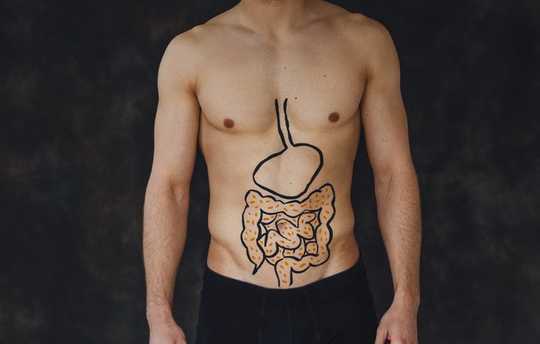
Ever since Alexander Fleming discovered penicillin growing naturally on a petri dish, we have been aware of the power of chemicals produced by microbes. But we have only recently realised their vast potential.
Microbiome research has now become one of the hottest topics in science as multiple conditions, including heart diseases, obesity and appetite and mood changes, appear to be linked to the microbes inside our gut.
The collection of microbes in our bodies is called our microbiota, and most of the 100 trillion of them (bacteria, viruses, fungi and parasites) are concentrated in the colon of our intestines. Although they are similar in number to our own human cells they have around 200 times more genes than we do.
Each set of these microbial genes acts like a chemical factory, pumping out thousands of chemicals that provide vitamins and many essential metabolites that control our immune system, metabolism and brain functions. As we can now modify an individual gut microbiome with diet (for instance, by eating lots of fibre or fish oil), this opens up many exciting opportunities to use food as medicine.
Get The Latest By Email
Postbiotics
Our latest research, published in Nature Genetics, sheds new light on the interplay between what we eat, the way it is processed by our gut microbes and how we accumulate fat in our bodies, particularly around our waistline.
We collected stool samples from 500 twin pairs and measured over 800 biochemical compounds that microbes produce – the faecal metabolites. We were able to identify key biochemical substances in the gut that predict the amount of belly fat of a given person. It’s well known that the more abdominal fat we have, the more likely we are to develop diseases, such as type 2 diabetes and heart disease.
Our results show that our gut’s bacterial chemical activity is only minimally controlled by our genes (less than 20%). The rest is influenced by environmental factors – mainly diet. This is exciting because, unlike our genes and our innate risk to develop fat around the belly, which doesn’t change throughout life, our gut microbes can be modified much more easily.
Although radical changes can be made through faecal transplants from healthy donors, the results in obesity are still unpredictable. More conventional treatments are diet (such as high-fibre diets or fermented foods), prebiotics (foods or chemicals that “fertilise” your gut microbes) and probiotics (live microbes known to be beneficial, such as Lactobacillus). Now there is a new concept in gut health: postbiotics. These are the bacterial products or metabolic byproducts from gut microbes that have biologic activity in our bodies.
One creature’s trash…
If we want to take advantage of postbiotics, we need to give them the precise foods they need to maximise production, or we can make those compounds synthetically and add them to our diets or medication.
As part of our latest research, we built a “gut metabolome” database linking the various postbiotic compounds to the microbes, and this can help other scientists make ideal, bespoke gut environments.
For instance, many people take omega-3 supplements, but trials are disappointing. We recently discovered that omega-3 is beneficial because it makes gut bacteria produce other substances (a faecal metabolite called n-carbamyl glutamate that is anti-inflammatory and good for us). But not everyone can produce this chemical from their mix of microbes, explaining why these supplements don’t always work.
 Mum! We’ve run out of smart toilet paper again. Evan Lorne/Shutterstock.com
Mum! We’ve run out of smart toilet paper again. Evan Lorne/Shutterstock.com
The aim of scientists working in this field now is to identify the postbiotics produced by gut bacteria that help our body to efficiently distribute fat, so that we can use them to reduce obesity and diabetes.
In the not too distant future, smart toilets or smart toilet paper will give us a snapshot of the metabolites produced in our guts, and what foods to eat to redress any imbalance. This unique snapshot could be the key to manipulating our microbiota with personalised nutrition. In the new era of postbiotics, we can start to mine the huge hidden pharmacy that our trillions of microbes produce every day to keep us healthy.![]()
About The Author
Tim Spector, Professor of Genetic Epidemiology, King's College London and Cristina Menni, Research Fellow, King's College London
This article is republished from The Conversation under a Creative Commons license. Read the original article.
books_environmental








